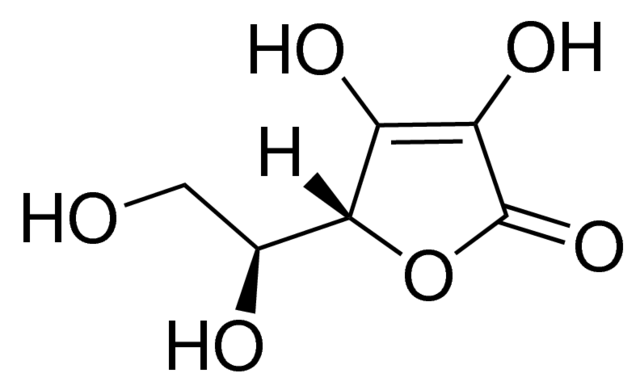HI! I’M ELEMENT AI.
Ascorbic Acid

Product Description
Ascorbic acid, also known as vitamin C, is a chemical compound with various industrial applications.
Product:
Ascorbic Acid
CAS:
50-81-7
Synonym:
Vitamin C; L-Ascorbic acid; L-Threoascorbic acid; Antiscorbutic factor
Structure:

Typical Characteristics
Appearance
White to very pale yellow crystalline powder
Density
1.65 g/cm3
Melting point
190-194 °C
Molecular Weight
176.12
Odor
Odorless
Purity
99%
Refractive index
1.711
Uses, Applications & Markets
Key applications
get a quote
We Offer Ascorbic Acid
in various grades
A few of the grades available are listed below:



Ascorbic Acid used in many
industry applications
Ascorbic acid, also known as vitamin C, is a chemical compound with various industrial applications. Here's a list of some of its uses:
- Food and Beverage Industry: Ascorbic acid is commonly used as a food additive and nutritional supplement in the food and beverage industry. It is added to various food products, including fruit juices, canned fruits, and processed meats, as an antioxidant and preservative to prevent oxidation and food spoilage.
- Pharmaceuticals: It is used in the pharmaceutical industry for the production of vitamin C supplements and medications. Ascorbic acid tablets, capsules, and syrups are commonly used to prevent and treat vitamin C deficiency, scurvy, and other health conditions.
- Cosmetics and Personal Care Products: Ascorbic acid is used in the formulation of cosmetics and personal care products, including skincare products, hair care products, and anti-aging creams. It functions as an antioxidant, skin brightener, and collagen booster, helping to protect the skin from free radical damage and promote collagen synthesis.
- Chemical Synthesis: Ascorbic acid is used as a reducing agent and catalyst in various chemical synthesis reactions. It is employed in the production of pharmaceutical intermediates, fine chemicals, and specialty compounds, such as in the synthesis of certain drugs, dyes, and flavoring agents.
- Water Treatment: It is used in water treatment formulations as a dechlorination agent and antioxidant. Ascorbic acid helps neutralize chlorine and chloramine disinfectants in water, reducing their harmful effects on aquatic life and improving water quality in aquariums, swimming pools, and wastewater treatment plants.
- Textile Industry: Ascorbic acid is used in the textile industry as a bleach stabilizer and color fixative. It is added to bleaching baths and dyeing processes to enhance the effectiveness of bleaching agents and improve color fastness in dyed fabrics, particularly in the production of cotton, wool, and silk textiles.
- Photography: It is used in photography as a developer agent and image stabilizer. Ascorbic acid is used in black and white film and paper development processes to reduce silver ions to metallic silver, producing photographic images with improved contrast, tonal range, and archival stability.
- Agriculture: Ascorbic acid is used in agriculture as a foliar spray and soil amendment to promote plant growth and health. It acts as a natural plant growth regulator, antioxidant, and stress reliever, helping to improve crop yield, quality, and resistance to environmental stressors such as drought, heat, and pests.
- Biotechnology: It is used in biotechnology and cell culture applications as a reducing agent and antioxidant. Ascorbic acid helps protect cells and tissues from oxidative damage during cell culture, tissue engineering, and in vitro studies, enhancing cell viability, proliferation, and protein synthesis.
- Chemical Analysis: Ascorbic acid is used in chemical analysis and laboratory research as a standard reference compound and titration reagent. It is used in analytical techniques such as high-performance liquid chromatography (HPLC), spectrophotometry, and titration to quantify the concentration of ascorbic acid in various samples and solutions.